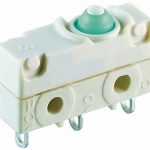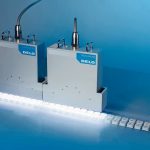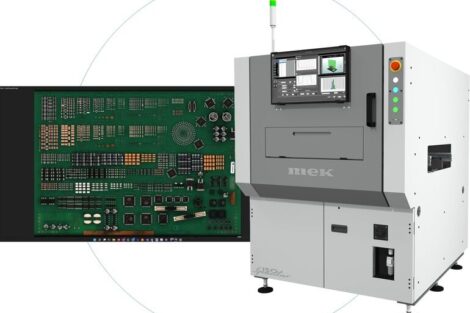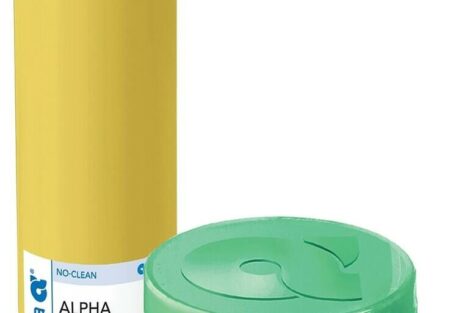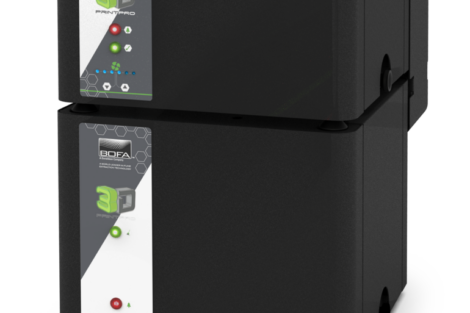Mechatronics expert, Marquardt, is a manufacturer of microswitches and other electro-mechanical and electronic switches and switching systems. This independent family-owned company now employs a payroll staff of more than 10,000 throughout 14 countries. Ever since the company was founded in 1925, it has had its head office in the German town of Rietheim-Weilheim.
Really great little switches
The 1045-series switches are company classics. Every year, millions of them are manufactured for white goods and for the mechanical engineering sector. The snap-action switch is designed as a pushbutton, switching a power circuit on and off by indirect actuation (NO/NC), or between two power circuits (changeover contact).
The amount of know-how contained in them is demonstrated by the fact that this switch, measuring just 5 mm x 20 mm x 20 mm and weighing only about 1 g, is designed for a mechanical service life of ten million switching cycles – after this time, the spring force still needs to function.
Until now, adhesives in these switches have at best been used for creating a durable bond between top and bottom switch components, but increasingly stringent requirements in many sectors led the company to make further use of the adhesives‘ excellent properties. Another function had to also be vectored into the equation: Switches now need to be sealed reliably from the ingress of water and humidity, enabling them to achieve IP67 certification.
For this purpose, the switches must be hermetically sealed, as well as on their connection point. This outcome can be achieved by applying a bead of adhesive right around the circumference of the shells. The integrity of these seals depends upon them not tearing or having any defective points. Furthermore, the pins that assure electrical contacts must be encapsulated. This means that media must not be able to penetrate the tiny gap between pin and injection-molded enclosure.
An adhesive is therefore used, to achieve good adhesion to enclosure shells made of glass fiber-reinforced polyamide as well as differently metallized pins – and the bond must remain intact right across the service temperature range of –40 to +100 °C. In view of the production volume required, the adhesive must also cure within a matter of seconds to be compatible with efficient high-volume production operations.
Preactivation delivers short cycle times
The company therefore favored a light-activated epoxy resin. In contrast to the more familiar light-curing products that are exposed to a light source after the joining process and need to have substrates that are impermeable to light, irradiation of this adhesive takes place during preactivation, immediately after the dispensing operation. Thanks to its different chemical structure, it remains fluid for a short time, the ‚open time‘, during which components can still be joined. That makes this process suitable for opaque materials, such as two enclosure shells. Then, within just a few minutes and without further exposure to light, the adhesive achieves its functional strength.
After various strength and irradiation tests, the company chose the Katiobond LA6078 product, specifically developed by Delo industrial adhesives for this application. It is applied to the underside of the polyamide shells after their plasma pretreatment, which increases their surface energy, making it easier to apply liquid adhesive. Next, a camera system detects the correct application of the fluorescent adhesive. After that, the adhesive is preactivated for a few seconds, using a Delolux 80 LED lamp. The top shell is then joined and clicked into place before the switch is inverted for the next process, the pin encapsulation. The Katiobond LA6078 adhesive is also used for this task, and it is then cured on a production line featuring five Delolux 202 LED area lamps. Here, the adhesive also enables a production process lasting just a few seconds.
Conclusion
To produce a reliable seal for microswitches, and to achieve IP67 certification, adhesives are indispensable. In addition to their important contribution to the durability of components, they also ensure fast production processes with high yield rates.
Zusammenfassung Résumé Zusammenfassung russisch
Der Anwenderbericht zeigt auf, dass zur Gewährleistung einer zuverlässigen Abdichtung für Mikroschalter Klebstoffe unverzichtbar sind und einen wichtigen Beitrag zur Langlebigkeit von Bauteilen leisten. Auch sorgen sie für schnelle Produktionsprozesse mit hohen Ausbeuten.
L‘étude de cas montre comment réaliser une étanchéité fiable pour les microrupteurs (micro-interrupteurs), les adhésifs sont indispensables et apportent une contribution importante à la longévité des composants. Ils assurent également des processus de production rapides avec des rendements élevés.
Отчет эксплуатирующей организации показывает, что для гарантии надежной герметизации микропереключателей непременно необходимы клеящие вещества, которые вносят важный вклад в долговечность компонентов. Также они обеспечивают быстроту процессов производства с высоким выходом продукции.



